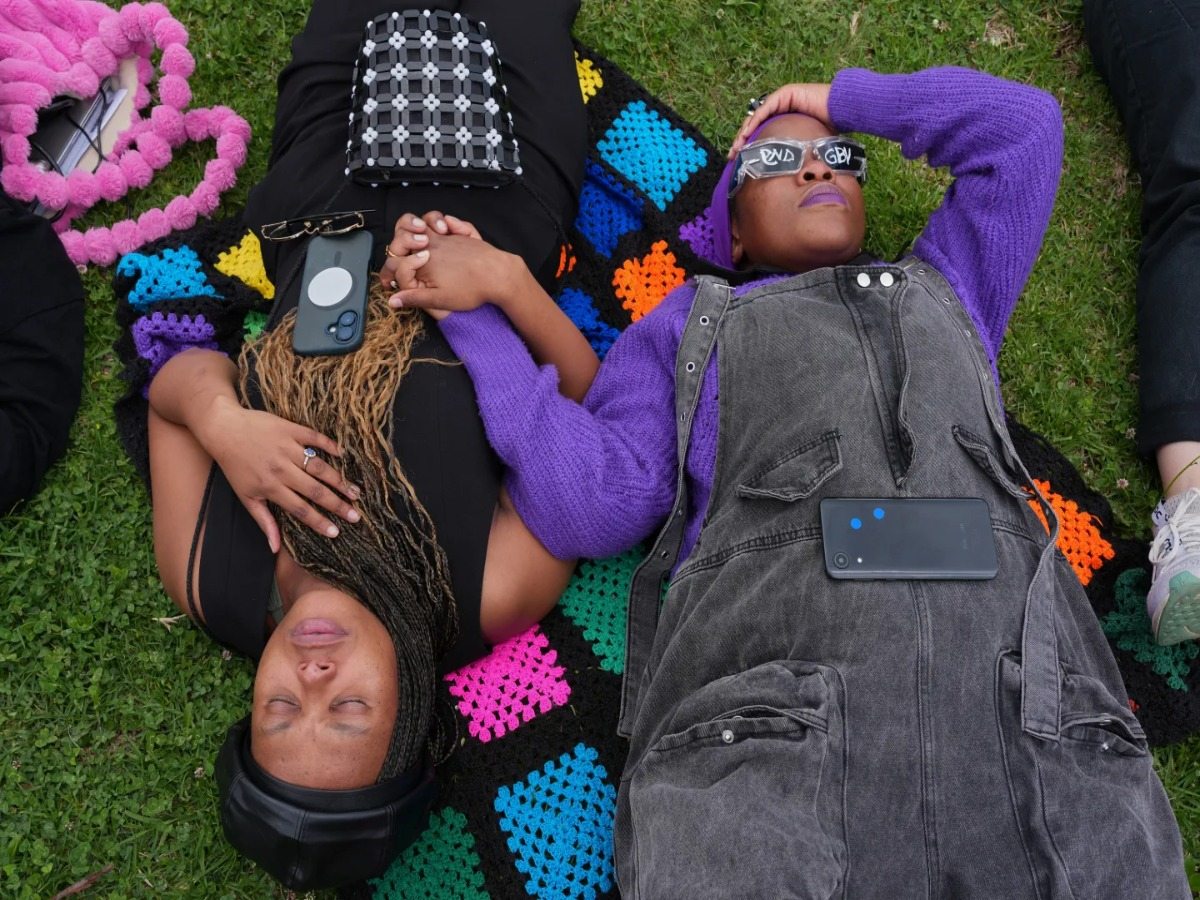Ahead of the G20 summit in South Africa, some women have embarked on a lie-down demonstration on Friday. Lying down for about 15 minutes, the women protested against gender-based violence and also mourned victims.
The silent demonstration was part of a coordinated effort across multiple cities, drawing survivors, activists, celebrities and ordinary citizens who wanted the world’s most powerful leaders to confront the crisis as the G20 convenes in Africa for the first time. Some participants wept as they lowered themselves to the ground, while others held signs asking, “Why do you hate us?” and “My body is not your crime scene.”
The nonprofit Women for Change, which organized the event, marked the protest as the peak of a month-long campaign urging the government to act. Their petition has collected over a million signatures.
Nineteen-year-old coordinator Courtney Gelderblom said the symbolic length of the protest carried a deliberate weight. “The protest was ‘a minute of silence for every woman that could have fallen within the day,’” she told The Associated Press. “So, every minute that we lie in silence is to mourn and honor those we have lost.”
South Africa’s G20 presidency has emphasized gender equality, yet the country continues to record one of the highest femicide rates in the world. U.N. Women reports that the nation’s rate is five times the global average, a grim reality South Africans have battled for decades.
Hours after the demonstrations, the government announced that gender-based violence had been designated a national disaster, triggering requirements for state agencies to intensify their response. President Cyril Ramaphosa echoed the urgency at a civil society forum on the sidelines of the G20, saying, “The women of our country are crying out that they need much more focus on the issue,” while referring to the crisis as a national emergency.
Experts argue the protest’s timing was strategic. Professor Corné Davis-Buitendag said gender-based violence belongs squarely on the global agenda because it undermines development and imposes enormous economic costs. “The strategic part of this is to try and put it on the agenda to say as much as other issues are relevant, gender-based violence is one of the biggest issues because of its impact on society at large,” she said. “We’re seeing an acceleration in, for example, child sex trafficking, which has become one of the biggest industries in the world.”
Despite legal reforms intended to support victims, Davis-Buitendag noted that “the numbers are not going down.”
READ ALSO: South Africa tightens security as G20 summit triggers protests and global tensions
Women for Change is calling on authorities to refuse bail in major gender-based violence cases, impose life sentences for offenders and hold police and justice officials accountable for mishandling cases.










